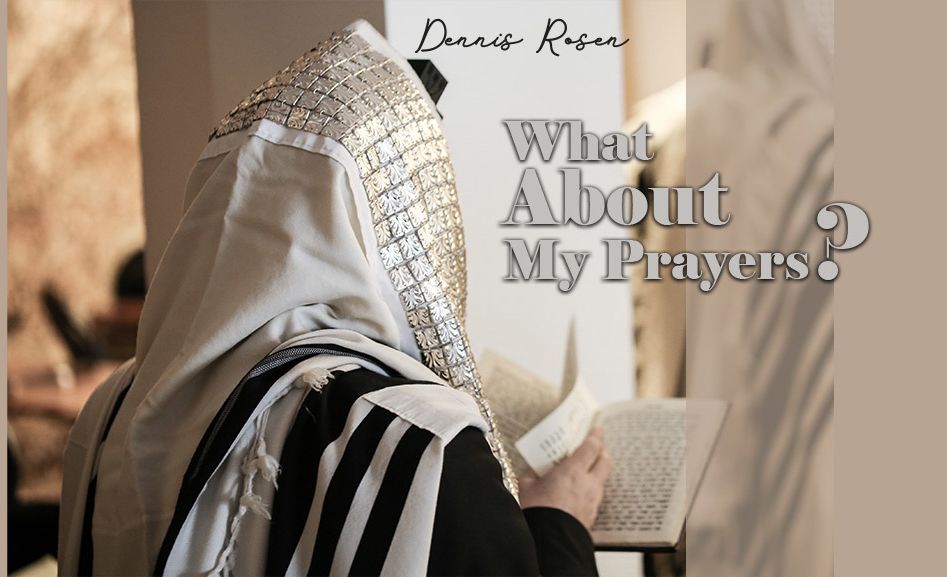
Peace in the Home
When a person is able to walk away from a challenging predicament, his or her emuna isn't taxed at all. Where there's no need to cope, there's no test!

“Shalom Bayit” – Peace in the Home
The Main Test
The main tests of a person’s faith are in the home, with his wife and children, who unwittingly test his faith from morning until night. They make demands on his time, his money, and his nerves. Sometimes they frustrate and humiliate him, and other times – no matter what he does – they never seem to be satisfied. Emuna is the only way to pass these tests.
The challenges of a marital relationship require a higher level of emuna than difficulties outside the home do. While a person can often avoid friction and confrontation on the outside, it’s difficult to escape trying situations at home. Furthermore, a person can change his friends and associates a lot easier than he can change his spouse, for a marital relationship is much more obligating.
The true tikkun, or soul correction, of a person, begins only once that person marries. Unmarried people normally manage in life without having to invest concerted effort in acquiring emuna. But, the demands of a wife and children make life virtually unbearable without emuna.
For example, unmarried people can normally avoid anyone they don’t get along with, for in most cases, they’re not forced to maintain contact. When a person is able to walk away from a challenging predicament, his or her emuna isn’t taxed at all. Where there’s no need to cope, there’s no test!
On the other hand, a responsible married person simply can’t walk away from a family. His wife and children are his diagnostic test of emuna. In the framework of a family environment, he can know whether he truly has emuna or not.
Here’s an example: Robert is a bachelor that works as a marketing representative of a big company. If one of his colleagues insults him or bothers him in any way, Robert has a quick tongue and even quicker temper; he’s more than ready to heap a double dose of venom on anyone that steps on his toes. Sometimes, Robert will roll with a verbal punch in order to preserve an image that he wants to create for his customers. It serves his best interests to appear on the outside as a distinguished individual of impeccable character, especially if it helps him seal a deal.
In reality, Robert is short-tempered and egocentric. In a marital situation, he’d either destroy his wife and children, or end up divorced. To avoid either of these two dismal fates, he must learn emuna, otherwise he’d never pass the tests of a family environment.
A married person should be a giver, not a taker. Incessantly, he must provide for the needs of his dependents, listen to their troubles, and grant them time, attention, and understanding. To perform the task of a giver, a person needs to be calm and composed – without emuna, inner peace and composure are utterly impossible.
An unmarried person can wear an artificial smile and convince the world that he or she is happy and fulfilled. But, after marriage, the true measure of a person’s happiness is revealed, especially when he has to brighten up his household with joy and confidence. A husband can’t possibly make his wife and children happy when he himself is miserable. True happiness is impossible without emuna, and marital life is a key testing ground of emuna.
Relationships outside the home, especially in the norms of modern society, are based on mutual advantage. “Scratch my back and I’ll scratch yours” is the type of thinking that indicates costumed, self-serving relationships that are designed to attain money, fame, dignity, social standing, advancement, and recognition. But, at home, a person removes the mask of self-serving diplomacy and acts naturally. If he lacks emuna, he’ll hate giving without getting – such a person will surely have tension at home, to say the least. If he desires shalom bayit – peace in the home – he’ll have to learn emuna. Emuna and shalom bayit are directly proportionate.
Here’s an important rule of thumb: A person’s shalom bayit, marital harmony, is directly proportionate to his measure of emuna, the higher the emuna, the more peaceful the home. Once a person marries, he or she can really attain lasting emuna.
A husband and wife must learn from the outset of their relationship to look at everything that happens in the home from the standpoint of emuna. Almost every daily occurrence between them, their children, their family members, or their respective colleagues at work is a test of emuna. Therefore, they need the constant support system of the three levels of emuna. Emuna, teshuva, and submission to Hashem’s Will are not only the best problem-solving tools in the home; they’re the only problem-solving tools in the home.
Happy with their Lot in Life
The Gemora (Tractate Taanit 23b) tells a delightful and pointed story: Rabbi Manni came before Rebbe Yitzchak ben Elyashiv and complained, “I can’t stand my wife – she is not at all pretty.”
Rebbe Yitzchak ben Elyashiv asked, “What’s her name?” Rabbi Manni said that his wife’s name is Hanna. “Then let Hanna be beautiful!” declared Rebbe Yitzchak ben Elyashiv, a tzaddik whose every utterance was a surefire blessing.
Hanna became gorgeous. Shortly thereafter, Rabbi Manni returned to Rebbe Yitzchak ben Elyashiv with a new complaint: “Ever since you blessed my wife, she gets more and more beautiful. The more beautiful she is, the haughtier she gets!” “If that’s the case,” said Rebbe Yitzchak ben Elyashiv, “then let Hanna return to her prior status.” Rabbi Manni came home, and was greeted by a smiling, pleasant, but quite ugly Hanna.
Rabbi Manni loved his newly ugly wife because she was so modest and pleasant, and completely his! This Talmudic anecdote exemplifies how Hashem knows what’s best for each one of us. A person must reinforce his faith that everything Hashem does is for the ultimate best and for our ultimate individual benefit – this is the emuna in Divine Providence. One who attains this level of emuna is always happy with his or her lot in life, since they know unequivocally that even life’s deficiencies are the product of Hashem’s personal intervention in their lives for their ultimate good. HaShem gives each person what he or she needs to attain their soul correction and to accomplish their mission on this earth.
In contrasting, a person without emuna has endless complaints. The wife blames her husband for all of her troubles. The husband has nothing but complaints and criticism about his wife, and is positive that she’s the root of his suffering. Understandingly, their household is a pressure cooker; their children undoubtedly harbor an assortment of emotional maladies. Such a couple flunks the test of emuna.
Consequently, one’s entire livelihood, happiness, personal welfare and the welfare of one’s spouse and children is completely dependent on emuna.
To be continued…









Tell us what you think!
Thank you for your comment!
It will be published after approval by the Editor.